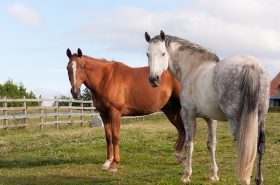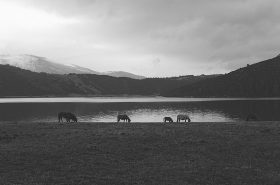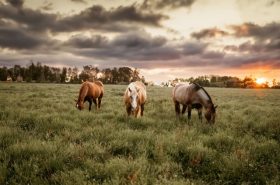Get the real facts about caring for your horse this winter!
There are so many different winter horse myths and opinions in the equestrian world. One barn does this, while another does that. It can be confusing when you’re new to horse ownership or just starting to ride. It’s important to delve deep and get the facts before settling on what is common or easy. Many myths have been circulating in the industry for decades.
Your horse will require extra attention and care this winter. You may need to blanket them, adjust their food intake, and speak with your farrier about snow pads. The list is long and there’s a lot of inaccurate information. Do your research and don’t fall for these top five myths!
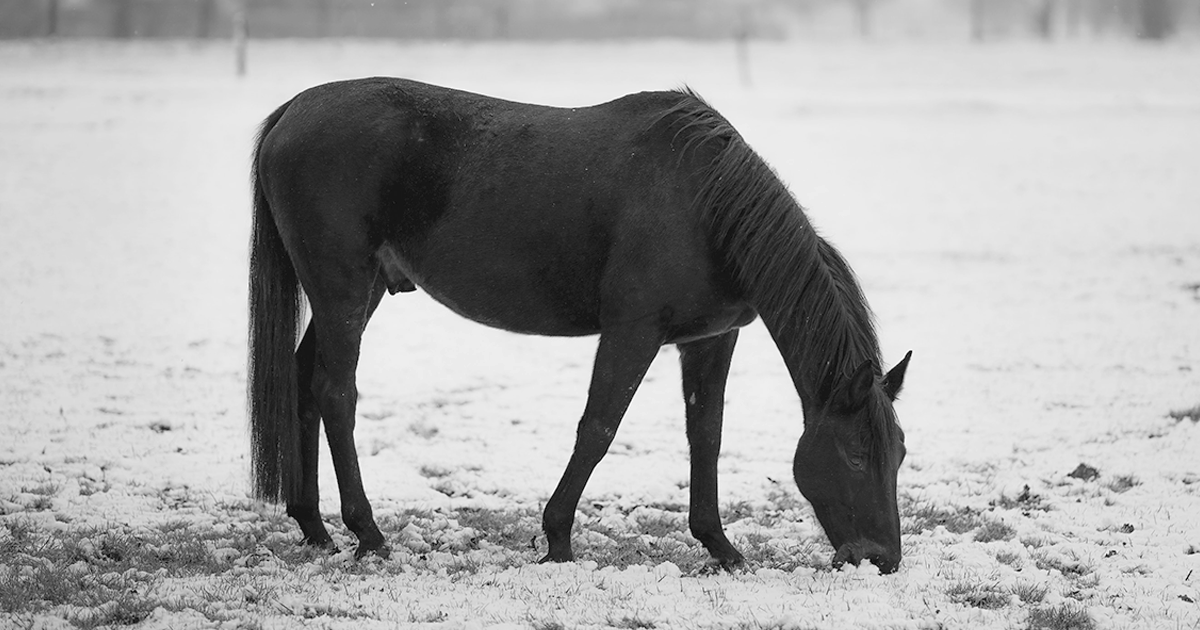
Winter Horse Care Myths
#1 Close up your barn doors tight to prevent a draft.
Well-meaning horse owners bolt up the windows and doors of their barns when the weather gets cold. Unfortunately, this prevents good air quality. A stabled horse needs fresh air! Dust from shavings or straw, urine ammonia, and hay particles can wreak havoc on your horse’s respiratory system. Some may even develop heaves. If dust and mold is inhaled, your horse may repeatedly cough or even have nasal discharge.
You’ll want to ensure there’s proper ventilation in your barn! A snug horse in a warm barn isn’t as comfortable as one that can breathe properly. Don’t be afraid to leave some windows open this winter, especially during the day.
#2 Your horse has water, so your job is done.
It’s not that simple, unfortunately. Your horse needs warm and clean water during winter. The ideal temperature is between 45 and 65°F. They’re 40% more likely to drink water if it is warmed. It’s important your horse drinks throughout winter to avoid dehydration and colic.
Keeping your water buckets free from the ice may require a heated bucket or automatic waterer. RAMM’s Ultimate Drinking Post Waterer is the perfect solution. The water is received below the frost line. Your horse will have access to clean, 50°F water during every season. They also require less maintenance. No one likes to scrub water buckets in the freezing cold!
#3 It’s cold outside. My horse will need a blanket.
The great blanket debate has been going on for too long. The simple solution is that blanketing is a very individual thing. Each horse should be evaluated based on its own specific needs. Generally, most horses won’t need a blanket just because the temperatures drop. The majority are able to grow a thick winter coat to keep themselves warm naturally.
A blanket or sheet can be useful in wet or very windy conditions. Senior horses or those in poor condition may also require the extra warmth of a blanket. In many cases, shelter and extra hay can keep your horse warm on a frigid night.
#4 It’s too cold or snowy to ride.
You don’t have to give up riding in the snow. You’ll need to take some extra precautions though! Be careful in deep snow and avoid ice. Your horse will also need a long warm-up and cool-down. Some use quarter sheets to keep their horse’s muscles warm in the beginning. A cooler is helpful afterward.
Additionally, horses often get snowballs in the bottom of their hooves. It can be like walking with high heels on. Those with shoes should have snow pads put on by their farrier. It can also be helpful to put Vaseline on the bottom of their hooves and carry a hoof pick on your ride.
#5 My horse needs less hay since they aren’t working as hard.
The opposite is true in the winter. Your horse will likely need more hay! It takes a lot of effort for your horse’s body to generate enough heat to keep them warm in the winter. Think of the logs in a wood stove. They’re the fuel that keeps the fire going, much like hay in your horse’s digestive system.
These winter horse myths have been busted! It’s important you go into the colder season knowing the real facts.
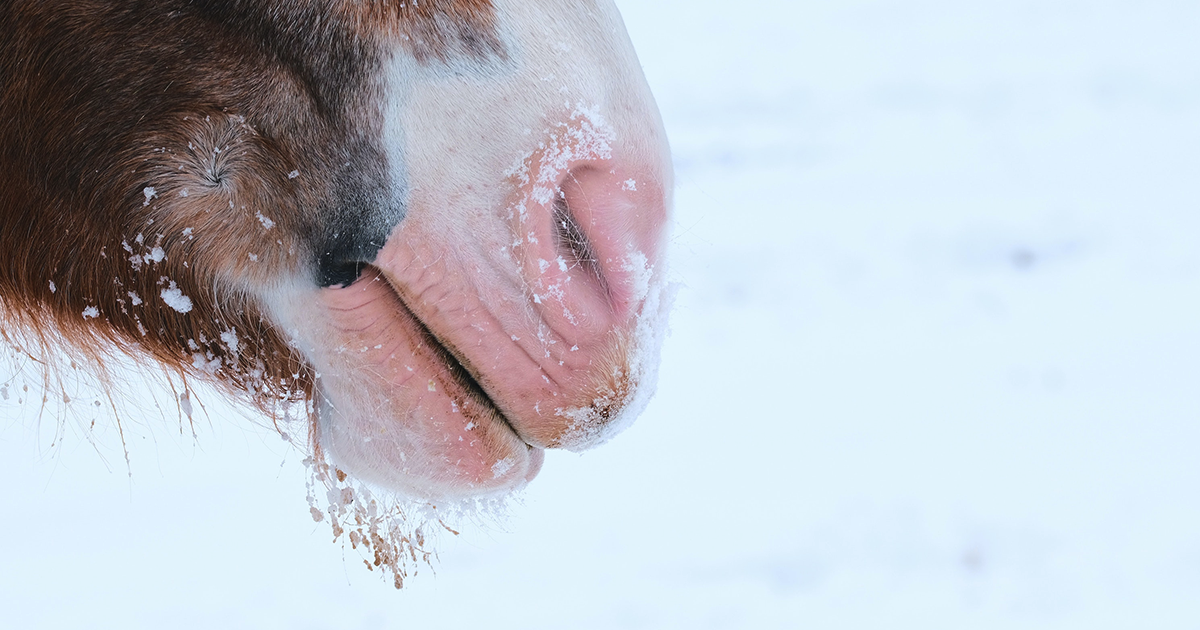
Love this blog post? We think you will like Winter Riding; Feed Your Body & Soul by Karen Elizabeth Baril.

